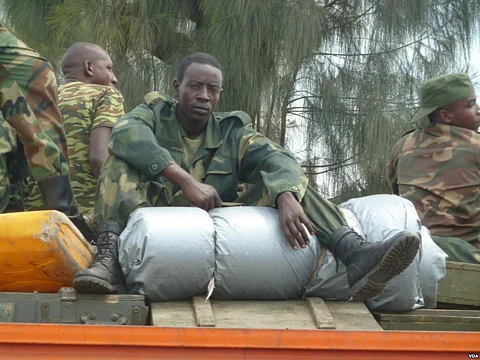

The Democratic Republic of the Congo (DRC) government and the Rwanda-backed M23 rebel group (March 23 Movement) are set to hold direct peace negotiations next week, Angolan mediators announced on Wednesday. The talks, scheduled to begin on March 18 in Luanda, aim to address the escalating conflict in eastern Congo, which has displaced tens of thousands and claimed thousands of lives since January.
Angola, acting as a mediator in the crisis, confirmed the talks in a statement from President João Lourenço’s office. “Following the diligence carried out by Angolan mediation in the conflict affecting the Eastern Democratic Republic of Congo, the Government of the Republic of Angola makes public that delegations from the Democratic Republic of Congo and M23 will begin direct peace negotiations on March 18 in the city of Luanda,” the statement read.
Escalating Conflict and Regional Tensions
The announcement comes amid a surge in violence in eastern Congo, where M23 rebels have seized key cities, including Goma and Bukavu, since late January. The conflict has forced nearly 80,000 people to flee the country, with 61,000 seeking refuge in neighboring Burundi, according to the United Nations refugee agency. The DRC government estimates that at least 7,000 people have died in the fighting since January.
M23 leader Bertrand Bisimwa claimed on social media platform X that the rebels had compelled DRC President Félix Tshisekedi to negotiate, calling it “the only civilized option to resolve the current crisis that has lasted for decades.” Tshisekedi visited Angola on Tuesday to discuss the possibility of talks, but his spokesperson, Tina Salama, did not confirm the government’s participation in the upcoming negotiations.
A Fragile Path to Peace
The upcoming talks mark a significant shift in mediation efforts, as previous peace negotiations hosted by Angola excluded M23 and focused instead on their alleged Rwandan backers. In December, peace talks between Congo and Rwanda were abruptly cancelled after Rwanda insisted that any agreement be contingent on direct dialogue between Congo and M23—a condition Congo initially rejected.
M23 is one of approximately 100 armed groups operating in eastern Congo, a region rich in strategic minerals such as coltan, cobalt, copper, and lithium. The group’s resurgence has reignited fears of a broader regional conflict, with neighboring countries including South Africa, Burundi, and Uganda deploying troops to eastern Congo.
The international community will be closely watching the Luanda talks, as their success or failure could have profound implications for stability in the region.